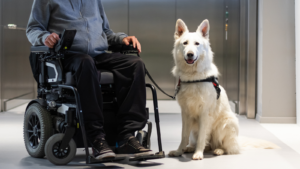Neurodivergent: Understanding and Embracing Neurodiversity in the Workplace

Neurodivergent: Understanding and Embracing Neurodiversity in the Workplace
In today’s diverse society, creating inclusive environments for employees to bring their authentic selves to work is a moral imperative and a strategic advantage for companies. Historically, people with different ways of thinking and processing information, called neurodivergent individuals, have faced many challenges when working for companies. Building inclusive workplaces that recognize and foster diverse ideas and perspectives can help all employees improve productivity.
What is neurodiversity?
Neurodiversity encompasses a broad range of natural variations in neurological functioning and cognitive characteristics among individuals. Neurodiversity acknowledges that diverse neurological conditions, such as ADHD, autism, Tourette’s syndrome, dyslexia, among others, are simply different ways of experiencing the world and processing information, rather than deficits.
Neurodiversity can show up in how people interact with the environment, how sensitive people are to information around them, and how they make sense of the world. For instance, an individual who is sensitive to different stimuli may find an open-office design to be a barrier to their style of working because of the many sounds and sights that may be distracting. A lack of clarity, or ambiguity in work responsibilities can be confusing to someone who craves a clear understanding of their tasks to excel. We should respect these differences and make accommodations so that everyone can fully participate and contribute to their workplace meaningfully on their own terms.
How can I create a more inclusive workplace?
Organizations can realize the full potential of their workforce by implementing adjustments that allow their entire workforce to thrive.
1. Making workplace accommodations
One of the primary ways to create neurodivergent-friendly workplaces is to identify the need for accommodations and workplace adjustments. Modifications to the physical environment in the form of providing private and/or quiet spaces for concentration; reducing sensory stimuli; or recommending different office furniture options, can provide choices for people to discover how they work best. Other changes that focus on the structure of work, for example through flexible work arrangements or task assignments that align with individual strengths, and clear communication strategies, can contribute to a more effective set-up that helps employees with various ways of working excel.
2. Provide coaching for employees
Another way to make a workplace more inclusive is by coaching employees in recognizing their needs and adopting habits that can improve their performance. Certain professionals, such as occupational therapists, can help coach employees regarding incorporating sensory breaks throughout the day, where employees step away from the demands of work so they can return in a more refreshed state. They can also help employees implement calming strategies when experiencing stressful situations, including deep breathing techniques, mindfulness meditation, or body scans. These strategies not only help individuals feel better, but can also improve their focus, productivity, and overall satisfaction with the job.
3. Hosting education sessions
Companies can begin creating inclusive workplaces by hosting sessions to educate employees and employers about neurodiversity. By doing this, workplaces can clear up misunderstandings, correct false beliefs, and dispel the stigma associated with neurodiversity. This educational initiative contributes to a culture of continuous learning, cultivating an environment that not only accepts but also celebrates differences in ability. Furthermore, this understanding trickles up to management levels, where a newfound awareness of neurodiversity empowers leaders. Armed with insights into the unique strengths and needs of neurodivergent individuals, managers can tailor support, assignments, and communication to harness each team member’s potential. The result is a harmonious blend of diverse abilities that fuels innovation and creativity.
4. Empowering employees
Acknowledging the expertise and insights of neurodivergent individuals and involving them in decisions about their work environment and accommodations is important to fostering an inclusive workplace. By granting employees a meaningful voice in determining how they can best contribute and thrive, organizations tap into their potential. Empowering individuals with autonomy signifies respect for their unique strengths and perspectives. It recognizes that they hold a valuable point of view on their own needs, preferences, and capabilities. When employees are encouraged to co-create solutions and adapt their work conditions, a sense of ownership and agency takes root. This, in turn, creates a deeper commitment to their tasks and goals.
The bottom line
It is important for organizations to embrace neurodiversity, implement accommodations, and foster inclusive environments. Workplaces can make changes that encourage neurodivergent individuals to show their talents, promote diversity and inclusion, and help companies reap the benefits of having a diverse workforce. While many of the suggestions described support neurodivergent individuals, they also serve as general best practices that enable the broader workforce to thrive.
INNoVA’s best-in-class training is designed to empower your organization with the skills to champion neurodivergent inclusion. Our training program is adaptable and can be tailored to align with your unique business requirements. Our resources offer versatility, easy accessibility, and an immersive learning experience, catering to professionals eager to deepen their understanding of inclusive practices particularly related to neurodiverse individuals within the workplace.
For pricing, enrolment, or booking information, or to discuss custom training and consulting services for your workplace, please contact us for more information. Your journey towards fostering an environment of neurodivergent inclusion starts here.
Luiza Pirvu
Student Occupational Therapist
Join Our Newsletter
Join the INNoVA family! The best way to keep in touch and be informed on our hiring process.



